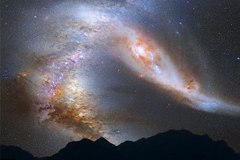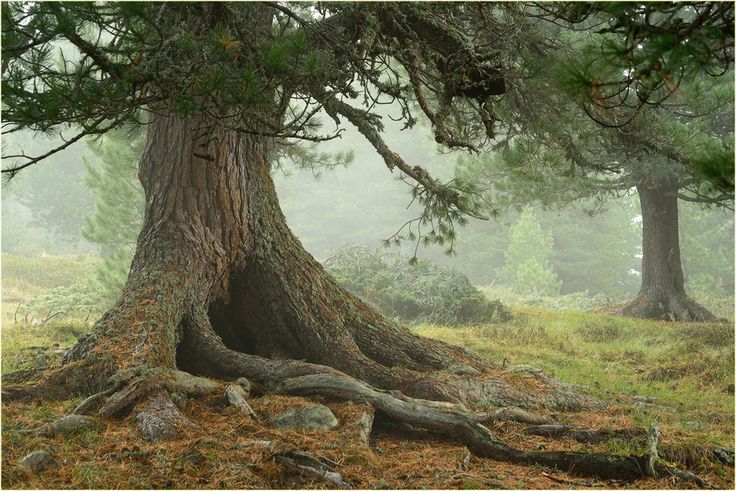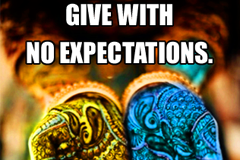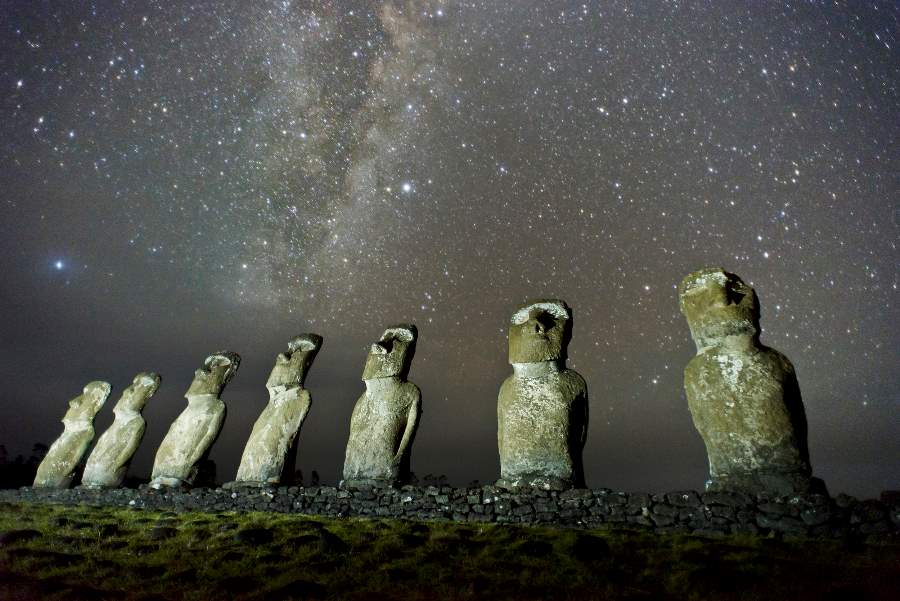
Thunderstorms casting long shadows on the horizon as the continents come alive with lights; the line separating day from night as it moves slowly across the Earth’s surface; the dancing curtains of auroras as shooting stars sweep across the stratosphere. Astronauts have described how it feels to look back at Planet Earth from space in a myriad of ways, but each with a common theme. Witnessing the world in unity, as a single entity in constant, dynamic motion, creates nothing less than a sensation of overwhelming awe.
The Ancient Concept of Awe
It is said that an astronaut can spend countless hours simply gazing through a spacecraft window, watching the changing scenery and the interactivity of Earth’s surface. It is hard to argue with their claim that this is one of the most profound experiences in the history of humankind. And it is certainly not difficult to understand why the earliest astronauts, as they circled the Moon, pondered whether this harmonious view of their home planet turned out to be the most important reason for embarking on the journey.
Edgar Mitchell, Apollo astronaut, sought the meaning of his experience and found little to satisfy him in scientific and religious literature. Finally, after reaching out to a local university, he was told of an ancient concept called “Savikalpa Samadhi,” which describes seeing things with our eyes but experiencing them viscerally and emotionally, creating a sense of complete unity. It suddenly occurred to him that this feeling of awe was not new to the astronauts, but something vital to human nature.
The Meaning of Awe
Indeed, awe may be the driving force that has pushed humanity through the millennia, leading us to achieve great heights and spurring us on to evolve, develop and grow. Psychologist Nicholas Humphrey describes it as an evolutionary advantage: something that was deliberately selected through hundreds of generations because it fills each one of us with a sense of cosmic significance. Awe shapes our species into one that strives not only to survive, but to flourish and improve. Consciousness, says Humphrey, is a magic show inside our own heads that transcends the mundane and makes us feel special, giving us a stronger reason to survive and a desire to live in the moment. When we experience awe, we feel compelled to occupy the present and deepen our experience of the world. We are driven to explore, imagine and push ever onward in our quest for understanding.
Awe is just as essential on an individual level as it is to the destiny of our species. Experiencing awe, according to a study at Stanford University, has long-lasting effects on our well-being. It adjusts our perception making us feel rich in time, a feeling so easily lost in the haste of modern living. Instead of lamenting how much we have to do in so little time, we instead feel that the time we have stretches out infinitely. We are less impatient, more willing to give our time to help others, more satisfied with our lives and more likely to prefer experiences over material belongings. Awe brings us into the present, making our lives feel vastly more satisfying than before.
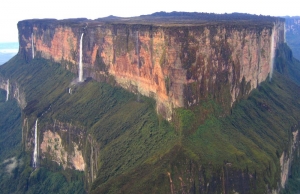
Awe in Everyday Life
The cosmic experience of the astronauts has been described as the “Overview Effect.” Looking back at our planet, we can begin to see things that we know on an intellectual level but have never experienced for ourselves. We can see the Earth as one system, a view that we have evolved towards since the earliest days of civilization, when our perspective of the world began to grow exponentially. Many of the world’s great philosophies have recognized this unity, the oneness, but only in the age of space travel can we witness it for ourselves.
Nevertheless, traveling to the stars is not necessary to experience awe – opportunities are present all across the world, almost everywhere we go. A deep sense of awe can be found in gazing upon the marvels of human invention, such as the Great Wall of China, the ancient pyramids of Egypt and Latin America, and Angkor Wat in Cambodia. Some invoke a picture of mankind’s incredible progress through the ages while others, like the brand new Shard skyscraper in England, display the very best of our current abilities.
The marvels of nature can be more awe-inspiring still. Standing at the edge of Angel Falls, the base of the Hawaiian volcanoes or the shore of Lake Titicaca summons an immediate sense of wonder at the majesty of our world. Even the most common of everyday experiences, such as a firework display or the moment when a community pulls together in the face of adversity, are soul-touching sources of awe.
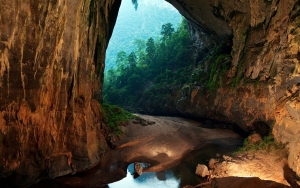
Embracing the Experience of Awe
Awe is an opportunity to be embraced. By visiting sacred places, reflecting on our own place in the cosmos and meditating on the meaning of existence, we can awaken our spirit and expand our consciousness. The experience of awe is in itself ecstasy. To live in awe is to recognize that life is a gift, and that humanity is intertwined and deeply connected to the vastness and splendor of nature, our planet and the universe.
Savikalpa Samadhi is the highest spiritual state of consciousness, bested only by infinite bliss. Awe fills us completely and flourishes as sheer joy as we recognize we are part of the unfathomable intricacy of the greater whole. As we rise to this state, we elevate our higher selves to experience gratitude for life and profound sense of oneness. Living in awe allows us to marvel at our own existence and the magnificence of being alive, as part of something great.
Milan Ljubincic is an Adelaide psychologist and internationally featured writer in the field of universal consciousness.
Image Credit: Easter Island; Mount Roraima & Hang Son Doong Cave

